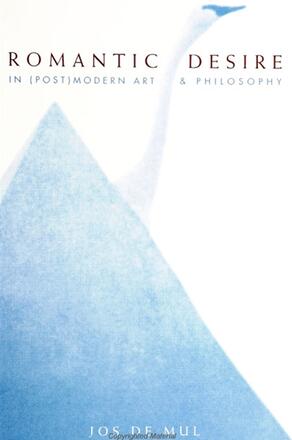
Romantic Desire in (Post)modern Art and Philosophy
Alternative formats available from:
An erudite and wide-ranging discussion of postmodernism and romanticism in twentieth-century art and philosophy.
Description
In this erudite and wide-ranging discussion of postmodernism and romanticism in twentieth-century art and philosophy, Jos de Mul sheds a fascinating light on the ambivalent character of our present culture, which oscillates between modern enthusiasm and postmodern irony. Along the way, he engages the work of such thinkers as Nietzsche, Freud, Heidegger, Habermas, Lacan, Barthes, and Derrida; visual artists Magritte and Stella; poets George and Coleridge; and composers Schönberg, Cage, and Reich, among others, providing a sort of intellectual history of Romantic, Modernist, and Postmodernist "tempers. "
Jos de Mul is Full Professor in Philosophy of Man and Culture at Erasmus University, The Netherlands.
Reviews
"Jos de Mul does a beautiful job of summarizing in compressed form some of the most vexed texts and ideas in contemporary theory; as a writer, he is a fine teacher. He is also an effective critic of the arts, especially painting and music. I learned and re-learned a great deal in reading this book. If a student were to ask 'What book can I read that not only explains what these people whose names I hear all the time actually say, but also demonstrates the significance of their ideas in practice?' I would be tempted to refer him or her to this book. " — Jean-Pierre Mileur, University of California, Riverside
"A fine, efficient introduction to a wealth of texts and demanding theoretical issues that few critics seem to know as well as de Mul. " — Thomas Pfau, author of Idealism and the Endgame of Theory: Three Essays by F. W. J. Schelling